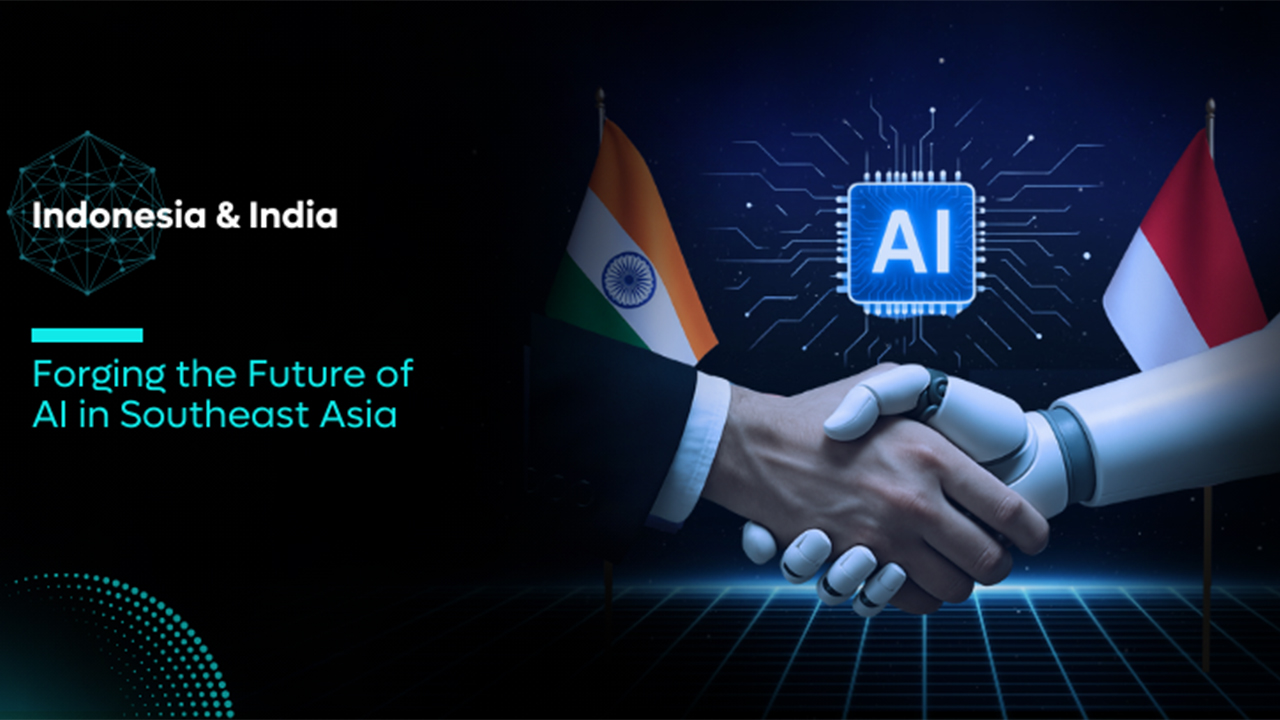
India and Indonesia Are Using AI to Reshape Global Digital Collaboration
Artificial intelligence is now more than just a futuristic promise. It is showcasing its scalability in reshaping economies, industries, & global power structures. While AI offers immense potential, it also demands serious attention to ethical governance, digital access, and long-term impact.
In this global landscape, India and Indonesia have announced a strategic AI partnership aimed at accelerating Indonesia’s digital transformation. At the center of this collaboration is AIonOS, a joint venture between India’s InterGlobe and Assago Group and Indosat, one of Indonesia’s largest telecommunications companies.
This move aligns two of Asia’s most dynamic digital players. India contributes deep technical expertise and a world-class digital workforce. Indonesia brings market momentum and a rapidly growing digital economy. The promise is powerful. The outcome, however, will depend on execution.
What’s Really at Stake
Indonesia’s digital economy is projected to reach 146 billion dollars by 2025. Its AI sector alone is expected to grow from 1 point 8 billion dollars in 2023 to 10 point 9 billion by 2030.
But the numbers mask a critical gap. Indonesia needs nearly 9 million new digital workers to meet future demand. Without talent and infrastructure, AI adoption will be uneven and unsustainable.
India, with its robust tech ecosystem, is positioned to help bridge that divide. This collaboration is not just logical. It is necessary.
Policies and Frameworks in Indonesia
Supporting this partnership is a growing regulatory foundation. The National Strategy for Artificial Intelligence 2020 to 2045 outlines five focus areas including healthcare, education, food security, transportation, and public services. It emphasizes ethics, transparency, and responsible implementation.
Regionally, ASEAN has introduced AI governance guidelines to align member nations on ethical standards. Within Indonesia, the Ministry of Communication and Digital Affairs is drafting policies to protect individuals from data misuse, increase algorithmic transparency, and enforce digital accountability.
These steps are essential to make AI development not just innovative, but equitable.
Tourism
Tourism is one of the most visible opportunities for AI transformation. Smart systems could enable hyper personalized experiences, digital concierges, and seamless trip planning.
But this potential depends entirely on how data is handled. Without clear privacy protocols and ethical data use, the trust that underpins digital tourism could erode quickly.
Agriculture
Indonesia’s vast and varied agricultural sector stands to benefit enormously from AI. Tools that monitor soil health, forecast weather patterns, or optimize irrigation could increase yields and support food security.
Yet, many rural areas still lack reliable internet access. Until infrastructure gaps are addressed, AI will remain a distant promise in much of the country’s farmland.
Workforce
Closing Indonesia’s talent gap is central to the success of any AI strategy. That requires more than training programs. It calls for investment in infrastructure, curriculum reform, and industry-academia partnerships to build a future-ready workforce.
Without this, the country’s digital potential will remain largely untapped.
Shaping the Future
The World AI Show Indonesia 2025 will be a critical moment to assess these efforts. Stakeholders from across the ecosystem will meet in Jakarta to separate vision from reality and shape the future of AI in the region.
Will this partnership become a model for inclusive AI growth
The conversation starts now
Explore Sponsorship Opportunities at World AI Show Indonesia 2025